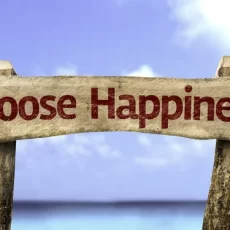Happiness does not seem to be linked to intelligence, at least not as measured by IQ tests, or to sex or ethnicity, any more than it is to physical beauty. Any yet “emotional intelligence” significantly differentiates happy people from unhappy ones. This concept, coined and described by Peter Salowey and introduced to the general public by Daniel Goleman, is defined as the ability to correctly perceive and take account of other people’s feeling. It is also the ability clearly and quickly to identify our own emotions. Happyho also provide best Meditation classes in Noida and Delhi NCR India area.
According to K. Magnus and his colleagues, happiness goes hand in hand with the capacity to assert one self with extroversion and empathy – happy people are generally open to the world. They believe that an individual can exert control over herself and her life, while unhappy people tend to believe themselves to be destinies play things. It would seem that the more an individual is capable of controlling her environment, the happier she is. It is interesting to note that in every day life, extroverts experience more positive events than introverts, and neurotics have more negative experiences than stable people. A person may be on a “streak” of bad luck or feel herself to be a magnet for problems, but it is important to keep in mind that it is ultimately our own dispositions that extroverted or neurotic, optimistic or pessimistic, self centred or altruistic – that impels us into the same situation again and again. An open minded person is more skilled at battling through difficult circumstances, whereas someone who is ill at easy feels increased anxiety that is usually reflected in effective and familial issues and social failures.
A spiritual dimension whether religious or not helps us to sent goals in life and promotes human values, charity, generosity and openness – all factors that brings us closer to happiness than to misery. It helps us to spurn the cynical idea that there is no direction to follow, that life is nothing but a self centred struggle under the battle cry “every man for himself”.
It is easy to imagine a priori how health might have a powerful influence on happiness and how hard it would be to be happy if we were stricken by a serious illness and confined to a hospital. But the turns are not to be the case and even in such circumstances we soon return to the level of happiness we enjoyed before falling sic. Studies of cancer patients have found that their happiness quotient is barely lower than that of the rest of the population.





